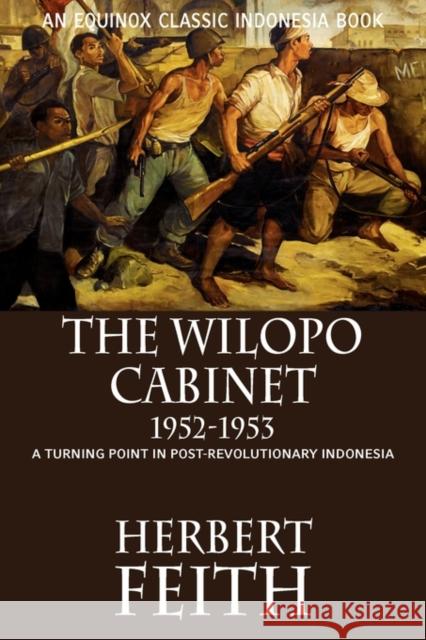The Wilopo Cabinet, 1952-1953: A Turning Point in Post-Revolutionary Indonesia » książka
The Wilopo Cabinet, 1952-1953: A Turning Point in Post-Revolutionary Indonesia
ISBN-13: 9786028397155 / Angielski / Miękka / 2009 / 244 str.
The Wilopo Cabinet was something of a watershed in post-revolutionary Indonesian politics. During its fourteen months of existence important changes developed in the constellation of political power among the major political parties, the President, and the army. And within one of the major parties there occurred a shift in the relative strength of leadership groups of such importance as to bring about significant changes in the partys political posture and in its relationship with several of the other parties. It was during this period that cabinet government was seriously undermined and parliament lost much of its prestige and power; and it was during these fourteen months that were set in train many of the developments which have dominated Indonesian political life in the last few years.The key political events of this period are complex and confusing and have generally been but imperfectly understood outside of Indonesia. Yet failure to understand them can result in more than inability to understand the period itself. It will also make difficult any full and sound comprehension of the important developments of the past few years. Herbert Feith, in my judgment, has probed much further into the events of this period than any other non-Indonesian scholar. He has searched out a great deal of significant new data which he has analyzed with tools sharpened by long residence and research in Indonesia, interviews with many knowledgeable Indonesians and a full mastery of the Indonesian language. I believe he has presented as clear a picture of an important period of Indonesian history and of its shaping of subsequent events as is likely to emerge for some time. - George McT. KahinABOUT THE AUTHORHerbert Feith (1930-2001) became familiar with Indonesia during 1951-53 and 1954-56 when he was an English Language Assistant with the Ministry of Information of the Republic of Indonesia. A citizen of Australia, he received an M.A. degree from the University of Melbourne in 1955 and a Ph.D. from Cornell University in 1961. He was a Research Fellow in the Department of Pacific History, Australian National University, from 1960 to 1962 and was Chair of Politics at Monash University from 1968 until 1974.











